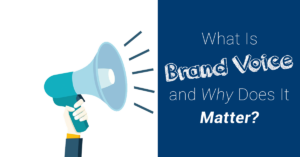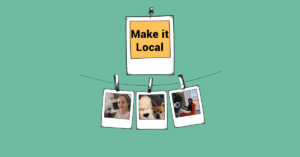If you read about the most recent changes to Facebook’s algorithm, then you might be wondering how the changes affect brands. As a social media and reputation management firm, Rallio always strives to help brands optimize their online presence and their advertising budgets. So if you’re in full-on panic mode, we’re here to tell you that these changes are not cause for alarm …
IF YOU ARE PUTTING AD DOLLARS BEHIND YOUR FACEBOOK CONTENT.
Pardon me. I don’t mean to yell. But it’s so important to understand that Facebook is a pay-to-play platform where if you want to have any kind of significant impact among your target audience, you need to pay to get in front of them.
If you find it difficult to wrap your head around this concept, think about it in terms of print advertising. Leaf through a magazine, and you see that the nicest, largest, glossiest ads at the front and back of the book. These are the big-money ads. The tiny little classifieds are small and hard to find because the advertisers didn’t pay as much for them.
And those that didn’t pay … well, do you even see them anywhere? Of course not, because nobody expects something for nothing. Or do they?
There are still brands out there that believe they can put up a Facebook page, post content and get it seen without ever paying a dime for advertising. Of course, there’s still something to be said for organic reach in terms of how your audience interacts with your content, particularly with Facebook’s new (or renewed?) emphasis on putting content in newsfeeds that’s community-oriented and focused on engagement among friends and family.
However, there’s an opportunity here for a powerful combination of paid posts and local engagement, one that we at Rallio are already using to help brands.
Stop freaking out about the #FacebookAlgorithm update. pic.twitter.com/7CUIhNyMMo
— Social B (@SocialBrunner) January 12, 2018
But Facebook stock dropped. What does it mean?
It’s true that Facebook stock dropped 5 percent with the news of its algorithm change, because people are worried that some ad revenue will decrease. And, it probably will. However, it’s not going away, and shareholders will demand it doesn’t decrease too drastically.
What we stress with our clients is that we need to be continually considering ways to convert “business” posts into “personal” posts. That is, once a brand gets engagement on a post, that interaction can be seen by others and the content is now falling under the consumer newsfeed algorithm and isn’t simply viewed by Facebook as a business post. The same is true with check-ins: When a consumer checks in to a business via Facebook, it can create great organic reach.
[bctt tweet=”Brands have a tremendous opportunity to capitalize on Facebook’s algorithm changes. Let the others leave, and you step in to reach more and more of your target audience and boost your visibility on the platform! #FacebookAlgorithm” username=”rallioHQ”]
So in actuality, brands have a tremendous opportunity to capitalize on Facebook’s algorithm changes. Let the others leave, and you step in to reach more and more of your target audience and boost your visibility on the platform!

